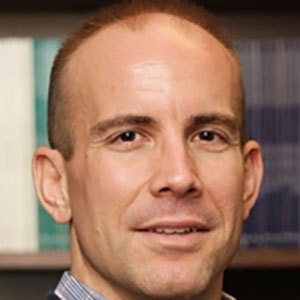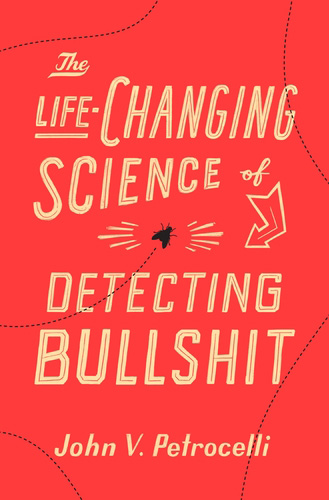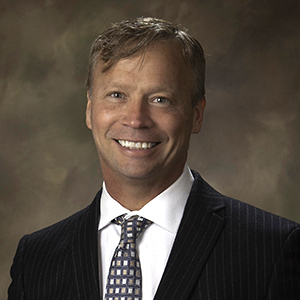Interview with John V. Petrocelli


John V. V. Petrocelli
author of "The Life-Changing Science of Detecting Bullshit"

Michael Carter
Co-Host
John V. V. Petrocelli, author of "The Life-Changing Science of Detecting Bullshit"
John V. V. Petrocelli's Website
I am a social psychologist and my research involves experimental social cognition and judgment and decision making. My specific research interests include attitude strength and persuasion, bullshitting, counterfactual thinking and metacognition.
Attitude Strength and Persuasion. How do various components of attitude strength (e.g., attitude certainty, attitudinal ambivalence, and attitude accessibility) affect attitude change and resistance to persuasive attempts? How do sub-components of such attitude attributes influence the attitude-behavior link, attitude stability, persistence, and resistance to persuasive attempts?
Bullshit and Bullshitting. Bullshitting is a pervasive social behavior involving communication with little to no concern for evidence and/or established semantic, logical, systemic, or empirical knowledge. Bullshitting is different from lying in that the liar is actually concerned with the truth – the liar tries to divert us from the truth. The bullshitter doesn’t really care what the truth is, he/she isn’t even trying – the bullshitter may be correct in his/her claim but wouldn’t know it. The words “bullshit” and “bullshitting” are now technical terms as used in philosophy and psychology. What are the antecedents, consequences, and utilities of this seemingly pervasive and inevitable behavior? Under what social conditions and/or mental states is bullshitting attenuated or augmented? Under what conditions are people receptive and/or sensitive to bullshit? How can people better detect and dispose of bullshit?
Counterfactual Thinking. Counterfactual thinking involves mentally simulating alternatives to reality and playing out the consequences of those alternatives (i.e., “could have,” “would have,” “should have,” or “if only” thinking). What role does counterfactual thinking play in reactions to general and specific cases? How does it affect memory for previous events? What role does it play in learning and performance on tasks? How does counterfactual thinking affect a physician’s diagnostic and treatment selection decisions?
Metacognition. Metacognition involves thinking about one’s thoughts and thought processes. How do metacognitive components of attitude strength affect attitude change? How does a metacognitive aspect of counterfactual thinking (i.e., counterfactual potency) influence affect, judgments of social targets, and decisions?
Bullshit is the foundation of contaminated thinking and bad decisions that leads to health consequences, financial losses, legal consequences, broken relationships, and wasted time and resources. No matter how smart we believe ourselves to be, we’re all susceptible to bullshit—and we all engage in it. While we may brush it off as harmless marketing sales speak or as humorous, embellished claims, it’s actually much more dangerous and insidious. It’s how Bernie Madoff successfully swindled billions of dollars from even the most experienced financial experts with his Ponzi scheme. It’s how the protocols of Mao Zedong’s Great Leap Forward resulted in the deaths of 36 million people from starvation. Presented as truths by authority figures and credentialed experts, bullshit appears legitimate, and we accept their words as gospel. If we don’t question the information, we receive from bullshit artists to prove their thoughts and theories, we allow these falsehoods to take root in our memories and beliefs. This faulty data affects our decision-making capabilities, sometimes resulting in regrettable life choices. But with a little dose of skepticism and a commitment to truth seeking, you can build your critical thinking and scientific reasoning skills to evaluate information, separate fact from fiction, and see-through bullshitter spin. In The Life-Changing Science of Detecting Bullshit, experimental social psychologist John V. Petrocelli provides invaluable strategies not only to recognize and protect yourself from everyday bullshit, but to accept your own lack of knowledge about subjects and avoid engaging in bullshit just for societal conformity. With real world examples from people versed in bullshit who work in the used car, real estate, wine, and diamond industries, Petrocelli exposes the red-flag warning signs found in the anecdotal stories, emotional language, and buzzwords used by bullshitters that persuade our decisions. By using his critical thinking defensive tactics against those motivated by profit, we will also learn how to stop the toxic misinformation spread from the social media influencers, fake news, and op-eds that permeate our culture and call out bullshit whenever we see it.